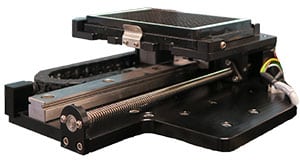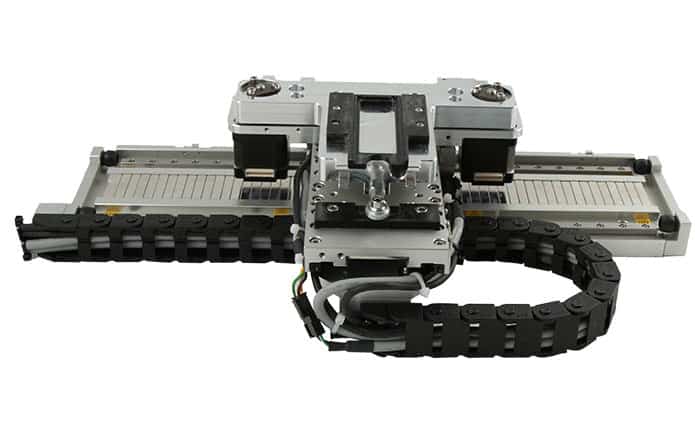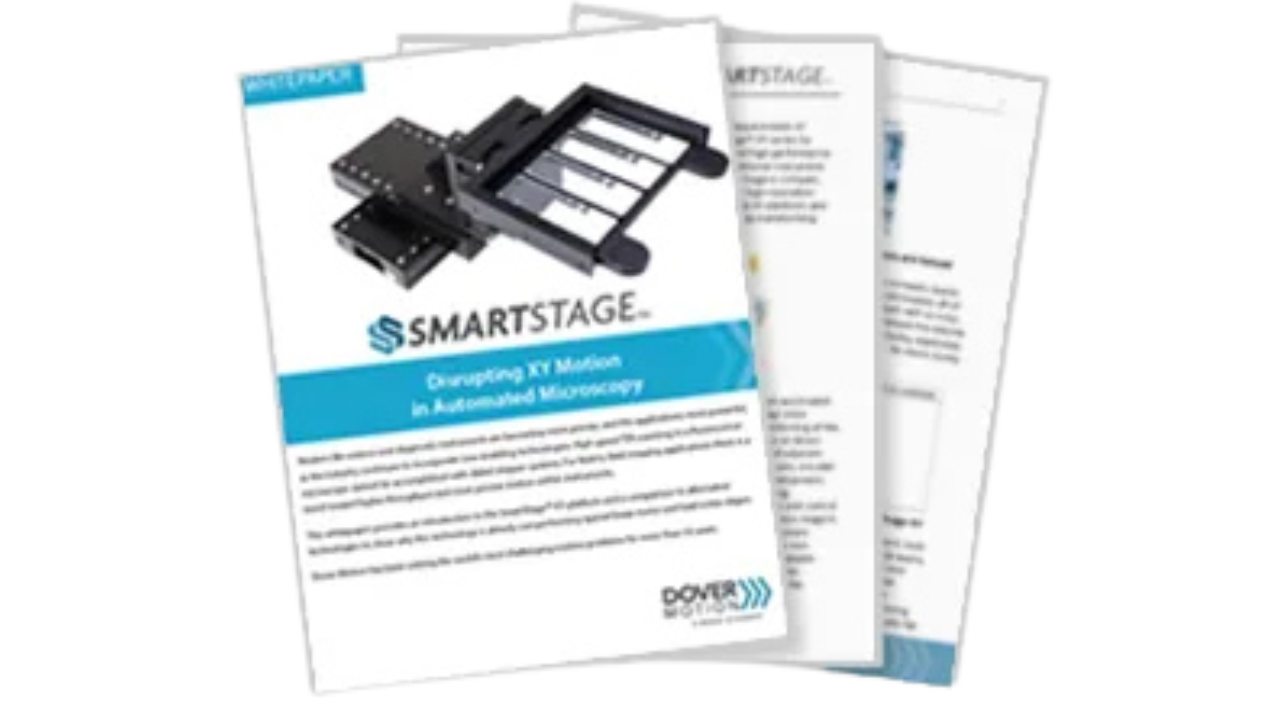Precision Linear Motors
Precision linear motors are electric motors that are designed to provide highly accurate and repeatable linear motion. They are commonly used in a wide range of industrial applications, including robotics, medical devices, and precision optics.
Types of Precision Linear Motors
A precision linear motor is an important part of a motorized linear stage. Based on the specific applications and characteristics, there are three types of precision linear motors:
- stepping linear motors
- brushless rotary servo motors
- direct drive linear motors
In a stepping precision linear motor, a rotary motion is converted to linear motion via a pulley and belt or a lead screw. Fully integrated stepping linear motor/lead screw assemblies have recently become widely available. They avoid the need for a rotary coupling and a lead screw bearing and provide a compact, cost-effective solution for many motorized linear stage requirements.
A higher performance and higher cost solution replaces the stepping linear motor with a brushless rotary servo motor. While these can achieve higher speed and precision, they require a rotary encoder and are not yet available as integrated motor/lead screw assemblies.

Figure 1: A Dover KV™ micro linear stage is a lead-screw-driven stepper motor stage.
The Advantages of Using Precision Linear Motors
One of the key advantages of precision linear motors is their ability to provide precise, high-speed motion with low levels of vibration and noise. This makes them ideal for applications that require high levels of accuracy, such as precision optics, laser imaging, etc.
Another advantage of precision linear motors is their ability to provide smooth, continuous motion without the need for mechanical components such as gears, belts, or pulleys. This eliminates many of the sources of friction and wear that can cause inaccuracies in traditional motion control systems.
Precision linear motors are available in a wide range of sizes and configurations, from small, low-power motors for micro-precision applications to large, high-power motors for heavy-duty industrial applications. They can also be customized to meet specific application requirements, such as different stroke lengths, mounting options, and feedback systems.
Overall, precision linear motors offer a high degree of accuracy, reliability, and flexibility. As technology continues to advance, the demand for precision motion control systems will only continue to grow, and precision linear motors will play an increasingly important role in meeting this demand.
Getting the Best Performance from Your Motorized Linear Stage
The highest performance approach to designing a motorized linear stage is to make the switch from rotary stepper driven motors to direct drive linear motors. In this approach, the motor delivers force directly to the payload, and a servo loop is closed based on feedback from a linear encoder.
Direct drive solutions for motorized linear stage requirements have traditionally been an expensive option. Direct drive technology has evolved and is now available at a more modest price point due to recent advances in magnetic material performance and cost, as well as cost reductions in linear encoders.
The value increases when the full life cycle costs of the motorized linear stage are considered. Motorized linear stages utilizing direct drive also provide a dramatic increase in system throughput through a reduction in move and settle time.

Figure 2: The Dover Motion MMS linear motor stage features a direct drive linear motor and recirculating ball carriage bearings.
Finding the Right Motorized Linear Stage for Your Application
We offer a variety of products featuring the most precise and cost-effective direct drive precision linear motors available today. Our products with motorized linear stages offer low profiles, long travel, miniature sizing, and ultra-precision air bearings. And each of our stages is configurable to best fit your unique application. For the last 50 years we have been collaborating with our clients to build them the right motions solutions. Contact us today to learn how we can work together on your next motorized linear stage.

